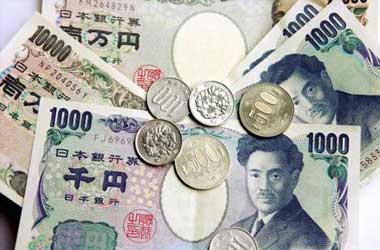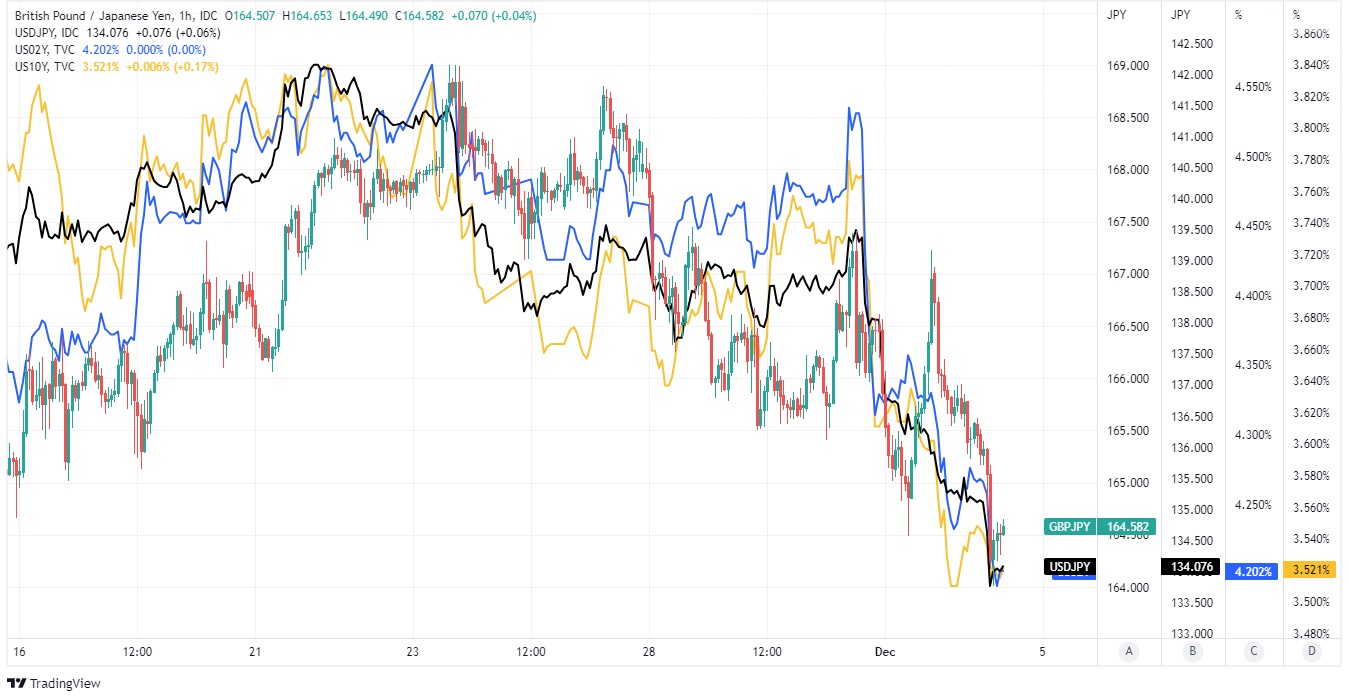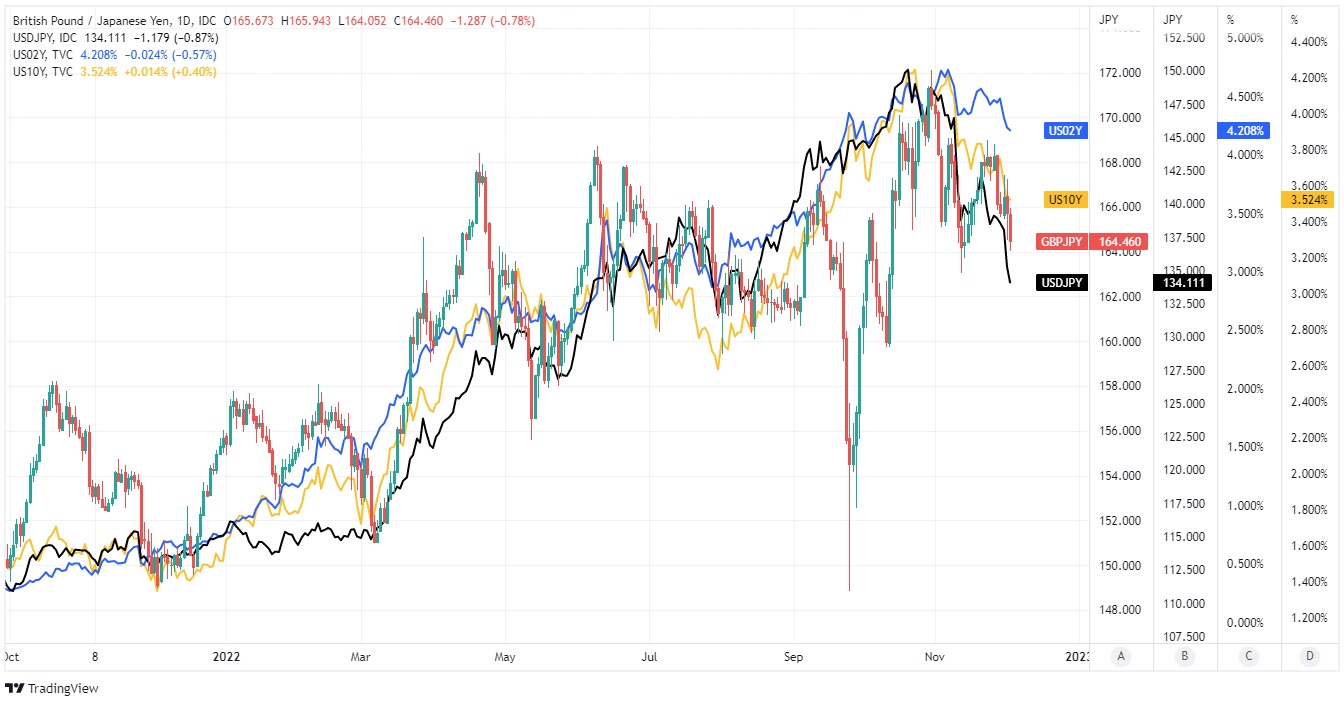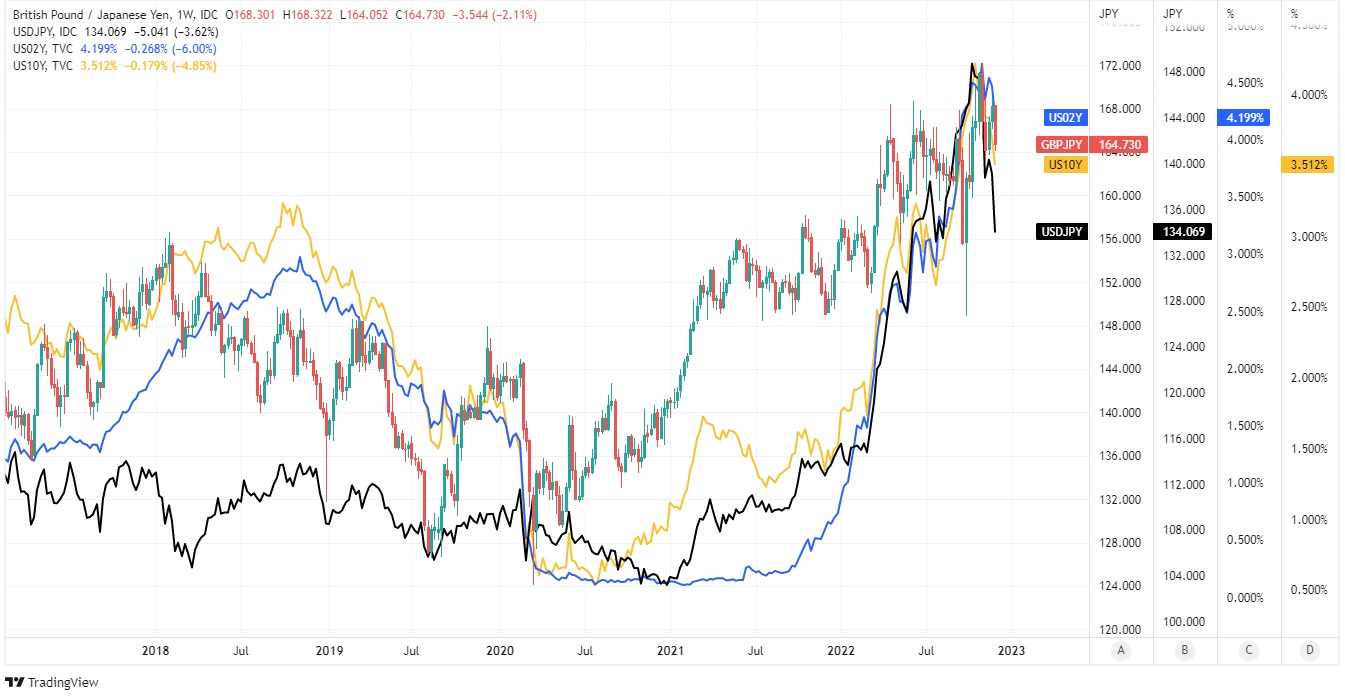 The Yen gained ground against other currencies in the closing session of the week with a sustained recovery against a receding Dollar, as the Japanese currency pulled Sterling close to its November low against the backdrop of declining U.S. government rates and growing speculation of a potential shift in Bank of Japan (BoJ) policy. Japanese interest rates became the lowest around the globe after the Swiss National Bank (SNB) and European Central Bank (ECB) boosted theirs past zero a few months back, while the Bank of Japan’s (BoJ) supine attitude made the yen particularly susceptible to the impacts of Federal Reserve’s hawkish monetary stance.
The Yen gained ground against other currencies in the closing session of the week with a sustained recovery against a receding Dollar, as the Japanese currency pulled Sterling close to its November low against the backdrop of declining U.S. government rates and growing speculation of a potential shift in Bank of Japan (BoJ) policy. Japanese interest rates became the lowest around the globe after the Swiss National Bank (SNB) and European Central Bank (ECB) boosted theirs past zero a few months back, while the Bank of Japan’s (BoJ) supine attitude made the yen particularly susceptible to the impacts of Federal Reserve’s hawkish monetary stance.
This year, the US benchmark interest rates hit their peak level since prior to the 2008 financial crisis, which boosted bond yields and acted as a steroid for the US Dollar, driving USD/JPY higher and pushing the Yen to its bottom point in ages. The Yen may have outpaced the majority of G20 currencies on Friday and for the trading week that ended due to earlier losses and the recent decline in U.S. rates.
“The primary risk for USD/JPY is if UST 10Y rates fail to receive further support around 3.50 percent,” writes ING FX analyst Francesco Pesole. “An additional bond surge might trigger a breach below the 200-day moving average of 134.50, so releasing further negative slope for USD/JPY. In spite of this, it may be difficult for markets to maintain sub-3.50% interest rates in the present climate “Pesole says.
The only currency that outperformed the Yen on Friday was the South African Rand, which had declined sharply on Thursday, and the Yen lost value to only the Brazilian Real for the week. However, it’s feasible that factors other than U.S. yields and the Greenback influenced Japanese currency values on Friday.
“Earlier this morning, Naoki Tamura fueled rumors of a policy change by stating that it may shortly be time to begin a reassessment of its regulatory framework. In the old days, the Bank has frequently made big policy adjustments after such assessments “According to XM’s chief investment analyst, Raffi Boyadjian.
Thursday, Naoki Tamura, a member of the Bank of Japan’s policy board, stated in an interaction with the Asahi Shimbun that the bank’s strategy of extending the monetary supply in quest of its hitherto hard 2% inflation objective should be revisited in the coming days.

The result of the forthcoming spring pay talks will be crucial, according to Reuters, which adds that “wages and service costs have scarcely increased, preventing the BOJ from following the lead of many top central banks.”

Financial market distortions, not inflationary pressures, prompted Naoki Tamura’s demand for a review, however a policy shift would be more probable if pay settlements in Japan improved next year. Rising wages might compel the Bank of Japan to adjust its inflation projections upward, necessitating a revision in its monetary policy measures.
In light of the duration for which Japan has kept negative interest rates and comparatively small bond yields, any ultimate shift in BoJ policy settings might have a disproportionately large effect on the Yen in comparison to certain other currencies and central banks. BoJ policy has rendered the yen a favored “funding currency” for traders betting on other currencies and investors in main economic assets.

Nevertheless, much would rely on the extent to which yields on yen holdings increase, which would be decided by the magnitude of any policy adjustment. “In November, the yen gained 7.7% against the US dollar, making it the second-best gaining G10 currency (after NZD). The USD/JPY exchange rate had its greatest percentage decline since October 2008 “According to MUFG’s world markets EMEA and global securities analysis chief Derek Halpenny.
“If inflation continues to decline gradually in the future, fixed income markets should experience less volatility. We think this is the optimum circumstance for the Bank of Japan to abandon its Yield Curve Control policy “Thursday’s article by Halpenny examines MUFG’s expectations.



